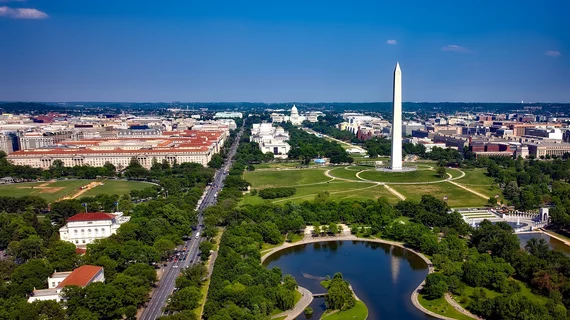ACR to Biden cabinet members: Please help make independent dispute resolution fair and accessible for all stakeholders
The American College of Radiology has worked out a way to protect patients from surprise medical bills for out-of-network services while modifying third-party arbitration so it sensibly serves providers and payers alike.
The question now is whether or not the potential primary implementer of ACR’s plan—CMS and its Center for Consumer Information and Insurance Oversight (CCIIO)—will go along with it.
ACR proposed the solution as a facilitating measure for the No Surprises Act in a letter addressed to HHS Secretary Xavier Becerra, Labor Secretary Martin Walsh and Treasury Secretary Janet Yellen.
The letter urges the three Executive Branch overseers to work with the CCIIO to adjust the Independent Dispute Resolution (IDR) process such that it works as intended not only for providers and payers but also for regulators, legislators and other stakeholders.
The letter is signed by CEO William Thorwarth Jr., MD, and was sent to Washington Jan. 19.
ACR says its proposed changes would yield such advantages as deflating the ballooning IDR backlog, reducing protracted wait times for dispute resolutions and easing financial burdens affecting IDR participants.
Addressing the latter point, the ACR plan calls for rolling back new fee increases for IDR filers, including a 600% hike in the IDR administrative fee (from $50 to $350).
In a news release, ACR says this and another fee increase often exceed disputed reimbursement amounts, effectively thwarting many providers—and potentially all radiologists—from participating in the IDR process.
The steps laid out in the Jan. 19 letter “can ensure patients continue to have access to lifesaving care from the providers of their choice as they are protected from surprise medical bills,” Thorwarth says. “Providers, insurers, regulators, lawmakers and other stakeholders must work together to ensure that these ACR-proposed positive solutions are implemented.”
ACR adds:
If not corrected, the issues raised in the ACR letter only add to growing insurer overreach that threatens access to care. To increase profit margins without lowering beneficiary premiums, health insurers are using the NSA to narrow medical networks, which may force many patients to travel farther and wait longer to access care.”
Thorwarth underscores that, for the IDR process to work as the No Surprises Act intended, it must be “accessible, fair and efficient.”
The proposed ACR solutions “strengthen efforts to achieve those goals while safeguarding patients from surprise costs and preserving access to care,” Thorwarth adds. “We strongly urge CCIIO to work with ACR and other provider groups to implement these steps forward.”

